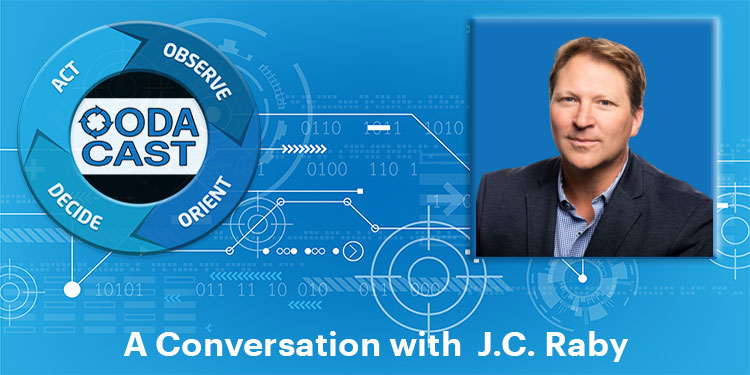Start your day with intelligence. Get The OODA Daily Pulse.
Start your day with intelligence. Get The OODA Daily Pulse.
Exponential innovation is causing exponential disruption
Exponential innovation is causing exponential disruption
Exponential innovation is causing exponential disruption
A friend from the biz used to say that after a few days out of the office he would delete any emails or other messages older than 72 hours old; odds are that whatever was being discussed prior to that point was likely to have been overtaken-by-events, so why bother wasting time trying to catch…
A government consultant, using computer programs easily found on the Internet, managed to crack the FBI’s classified computer system and gain the passwords of 38,000 employees, including that of FBI Director Robert S. Mueller III. The break-ins, which occurred four times in 2004, gave the consultant access to records in the Witness Protection Program and…
Teri O’Brien at The American Thinker considers the impact that Apple-like compartmentalization would have on . . . well . . . the IC: So, I think [DNI Negroponte] should resign, and President Bush should give [his] gig to Apple CEO Steve Jobs. To understand why, check out the article in this morning’s Wall Street…
Charlie is on the job: Years without an intelligence strategy to secure U.S. borders resulted in uncoordinated and sometimes incomplete threat information about immigrants, a top counterterrorism official said Wednesday. Only over the past year has the Bush administration begun to develop plans to analyze border security gaps with information gleaned from all the intelligence…
Given a chance to cut back on future leaks, the Senate balks: The U.S. Senate has refused to protect whistleblowers in intelligence agencies. The Senate last week passed a markedly different version of whistleblower protection legislation than the U.S. House of Representatives had previously approved, resulting in a call by one congressman for the creation…
To say that I am on the anti-secrets-publication bandwagon would be something of an understatement, but while listening to various editors and reporters on the radio talking about the rightness or wrongness of revealing classified material during a time of war (which is a debatable point in some circles), a couple of questions occurred to…
Nearly five years after the Sept. 11 attacks, the Departments of Justice and Homeland Security continue to clash over who is in charge of coordinating and vetting information on terrorism. As a result, state and local authorities continue to get conflicting or incomplete information – sometimes none at all – on threats inside the United…
. . . so little privacy: Almost every piece of personal information that Americans try to keep secret — including bank account statements, e-mail messages and telephone records — is semi-public and available for sale. That was the lesson Congress learned over the last week during a series of hearings aimed at exposing peddlers of…

Marc Ambinder is a journalist, researcher, historian, author of bestselling books and a teacher/mentor to many. We invited him on the OODAcast to help our community as we continue to look for insights that can drive operational decisions. For 20 years, Marc Ambinder has told true and complex stories about the world, revealed some of its…

We invited Boston Merdian’s co-founder and partner JC Raby on to the OODAcast do discuss his insights into the market today as well as his views on things companies can do to ensure they position themselves for the best possible transaction in the future. We also asked his advice for the strategic investor/buyer of firms…

Carmen Medina served 32 years in senior positions at the Central Intelligence Agency, most of which focused on one of the hardest tasks in the community, that of analysis. Carmen rose to lead the strategic assessments group for the agency, then was deputy director of intelligence, the most senior leadership position for analysis at the…